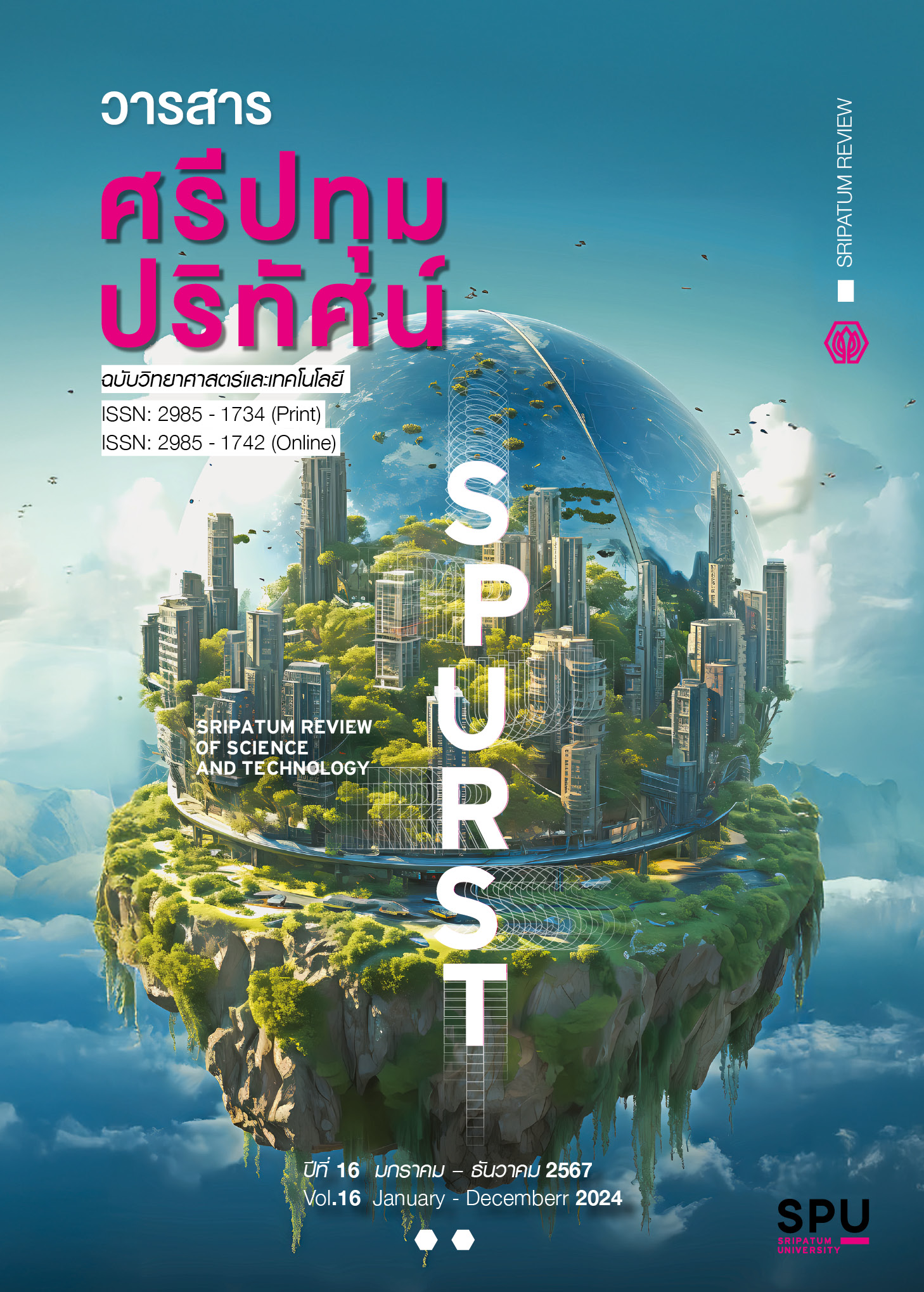The Model to Predict Depression Risk using Deep Learning Techniques from Basic Satisfaction in Subsistence A Case Study of Peoples in Bangkok
Main Article Content
Abstract
This research aims to predict the risk of depression based on external factors using deep learning models. It has three objectives: (1) to study, develop, and create a model to predict the risk of depression, focusing on a case study of individuals in Bangkok using deep learning techniques; (2) to test the effectiveness of the predictive model for depression risk in the case of people in Bangkok using deep learning techniques; and (3) to compare and evaluate the prediction model's results against a questionnaire designed by the researcher, which focuses on external factors that contribute to depression risk, and compare it with the depression assessment questionnaire provided by the Department of Mental Health, Ministry of Public Health. The case study involved 400 online survey samples from Bangkok residents. Both internal and external factor models were created, with score criteria adjusted according to international standards, and the results were compared. It was found that the model based on external factors achieved 99.92% accuracy, while the model based on internal factors achieved 99.93% accuracy, with only a 0.01% difference between the two. Both models had a mean squared error (MSE) of less than 0.0295 and a mean absolute error (MAE) of less than 0.1279. In conclusion, both models are consistent, and the research can be further developed to improve the accuracy of depression risk prediction
Article Details
References
Department of Mental health. (2022). Revealing the statistics of depression and Thai society,
the silent emotional dangers of modern people. [Online]. Retrieved on 10 October
from: https://dmh.go.th/news-dmh/view.asp?id=31459 (in Thai)
Thai PBS. (2022). Mental illness-depression, Thai statistics increase 1-2%. [Online]. Retrieved
on 10 October 2023 from: https://www.thaipbs.or.th/news/content/324887 (in Thai)
Department of Mental health - thaidepression. (2023). Total number of patients in budget
year 2022. [Online]. Retrieved on 10 October 2023 from: https://www.hfocus.org/ content/2022/12/26697 (in Thai)
The Psychiatric Association of Thailand. (2022). Number of patients with depression in
government hospitals. [Online]. Retrieved on 10 October 2023 from: http://example. com/psychiatry-association
Sundararajan & Wood. (2019). Time series forecasting using deep learning. arXiv
preprint arXiv:1905.03003.
Cho, K. et al. (2014). Learning Phrase Representations using RNN Encoder–Decoder for
Statistical Machine Translation. arXiv preprint arXiv:1406.1078.
Chen, J. et al. (2020). Artificial Intelligence in Depression Diagnosis: Recent Advances,
Challenges, and Future Prospects. Frontiers in Psychiatry, 11, 450.
World Health Organization (2022). Mental Health Atlas 2020 Country Profile: Thailand.
[Online]. Retrieved on 30 October 2023 from: https://www.who.int/southeastasia /home/search?indexCatalogue=searo-content-index&searchQuery=depression&words Mode=AnyWord
Banchuen, P. (2019). The development of sentiment data analysis model for customer
opinion classification using deep learning technique. the degree of master of science
in information technology school of information technology sripatum university.
(in Thai)
Kroenke, K. et al. (2001). The PHQ-9: Validity of a Brief
Depression Severity Measure. Journal of General Internal Medicine, DOI: 10.1046/j.1525-1497.2001.016009606.x.


